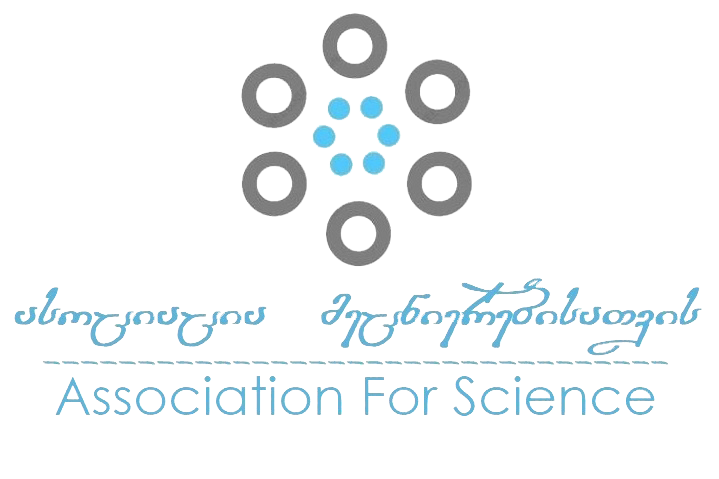Запад или Восток - геополитическая траектория Грузии
DOI:
https://doi.org/10.52340/isj.2024.27.20Аннотация
Georgia and the Central Caucasus as a whole are a region located in the epicenter of dominant geopolitical flows. The main geopolitical forces - the United States and Russia are fighting for the South Caucasus to acquire their geopolitical and geoeconomic space, where Caspian oil and gas are priority aspects of their policy. The Georgian government was forced to take a foreign policy course towards the West after Russia occupied the historical regions of the country, naively believing that civilized Europe with its military-political bloc would help the country with the issue of restoring the territorial integrity of the state. However, the geopolitical confrontation between the United States and Russia led to the fact that the occupied regions of Georgia in 2008 were recognized by Russia as «independent states» - this was a response to the recognition of Kosovo by the West. The Kremlin believed that this act punished Georgia, but Moscow did not take into account that for the Georgian people it does not matter what status the occupied regions of the country will have, their liberation is only a matter of time! The silence and inaction of the world community led to Russia occupying Crimea without shame or conscience, creating the so-called DPR and LPR from Ukrainian regions, and then openly starting a war with the aim of seizing Ukraine. Thus, the issue of Georgia was sacrificed to the geopolitical games of the Powers. Georgian society understands perfectly well that the problem of justice and a just state is one of the “eternal problems” that run through the entire history of human society. In different eras of the development of human civilization, this issue has worried individuals, entire nations and states. Unfortunately, today in the 21st century, the states of the world have not yet reached the level of development where it would be possible to establish fair international relations. It is not for nothing that the classic of English essays William Haelit once wrote: “If humanity had striven for justice, it would have achieved it long ago.” Human suffering for big geopolitics is like the pranks of a small child, «civilized» Europe boasted that they had created universal states, and they were indifferent to the suffering of Georgians or other peoples of the post-Soviet or post-socialist space. We believe that it is not surprising that Georgian and the entire post-Soviet society gravitates toward the European community, so as not to fall under the influence of the unchanging Russia again. Geopolitical contradictions between great powers and state alliances, if not resolved in a timely manner, can lead to a global geopolitical confrontation. It is the geopolitical interests of the great powers that are the cause of the wars that are happening today before our eyes, and these wars are the way to resolve global geopolitical contradictions between them. In recent years, Georgia has developed and is pursuing a balanced policy in relations with geopolitical centers, since it is necessary to focus, first of all, on finding methods for solving long-term political and economic issues, of course, in the complex of the state>s international policy. In defining its foreign policy priorities, Georgia is guided by a unique combination of geopolitical factors that determine the nature of the regioms development and require increased attention to the development of comprehensive relations with neighboring countries
- Azerbaijan, Russia, Turkey. In this policy, Georgia is guided by the values of world civilization
- democracy, personal freedom and the rule of law. This is also the source of the country>s foreign policy concept, aimed at building equal and mutually beneficial relations with all countries of the world and ensuring its own geopolitical space for many geo-economic projects.
At the same time, it should be noted that the Georgian leadership is not going to sign a new Treaty of Georgievsk with Russia, although it has attempted to improve relations with Russia, but without the deoccupation of Georgian territory, normal relations between Georgia and Russia should not be expected. Hence the geopolitical orientation to the West.
The South Caucasus, Georgia in particular, is a small region in terms of area and population, which has now become one of the zones of geopolitical struggle. Moscow>s policy in this region is dictated by the fact that the processes taking place here are of great importance for the Russian Federation, since Georgia is the key to the Caucasus and the Black Sea region, therefore Russia cannot voluntarily give up control over the territory of Georgia under any circumstances. This is well understood in Georgian government and academic circles, but without the restoration of territorial integrity, normalization of political relations is excluded.
Despite the centuries-long efforts of the Russian Empire and the Soviet Union to dilute this European identity, Georgian commitment to a European future has proven strong. With difficulty, but the European Union nevertheless took a step towards meeting Georgia, granted Georgia the official status of a candidate country, but Tbilisi expected more, moreover, Europe believed that Georgia, «inspired» by the success of obtaining the status of a candidate country, would be an obedient executor of the will of Europe, the desire to involve Georgia in the war with Russia and actually open a second front did not work out for European diplomats. Moreover, the authorities in Tbilisi refused to join Western sanctions, preferring instead to keep the borders with the Russian Federation open and resume direct air traffic with Moscow. Since the beginning of the full-scale invasion, hundreds of thousands of Russians have rushed to Georgia. Georgian attitude to Russia>s war in Ukraine is ambiguous. In 1992-1993, Russia fought Georgia without actually declaring war, with the support of Abkhaz and Ossetian separatists. However, the European Union did not show itself except for «diplomatic indignation», there was no military aid, nor humanitarian aid, and the young state was actually left alone by the world community with Russia. In the geopolitical struggle between the West and Russia, it was decided to punish Russia>s geopolitical ally in Eastern Europe - Serbia. Thus, on February 17, 2008, the Kosovo parliament unilaterally declared the regioms independence from Serbia. This situation worsened Georgian international position, since after the August 2008 war between Russia and Georgia, Russian President D. Medvedev signed a decree recognizing the independence of Abkhazia and the so-called South Ossetia. Despite the shameful decision of the Russian government, which was a consequence of the recognition of Kosovo>s independence by the West, Russia, with its ill-considered policy, decided to punish Georgia once again for its alliance with the West. The West, as has already been noted, has its own interests in Georgia, but for the Georgian state, the restoration of the country>s territorial integrity is of primary importance, and not the humble fulfillment of the West>s wishes. Some independent steps by the Georgian government shocked the EU and the West as a whole, the governments adoption of the «law on foreign agents» raised concerns about Tbilisi>s commitment to democratic values and the prospects for Euro-Atlantic integration. For thirty years, the Georgian government has done everything to become a full member of the EU, but for some reason Brussels was in no hurry to help Georgia with the solution of its main geopolitical problems. Of course, Georgia is a country entirely oriented towards European civilization, but taking into account equality and respect for state interests. The application for EU membership demonstrates Georgia>s pro-Western aspirations in 2022 and the granting of candidate status in 2023. However, recent legislative steps to restrict foreign-funded NGOs have caused an interesting reaction in international circles, the adoption of the law was dubbed «Russian», although all EU countries and the US have long adopted similar laws.
The adoption of the bill on «foreign agents» in the West is seen as a retreat from democracy and a geopolitical tug of war, it is the change in geopolitical orientation that worries the West, not the adoption of the law. The Georgian government and Georgian society are waiting for real proposals from the EU and the US to restore Georgia>s territorial integrity and join the EU. Otherwise, the upcoming parliamentary elections in October 2024 will determine the geopolitical trajectory of Georgia and its relations with both the EU and Russia.
Скачивания
Библиографические ссылки
. Токаев К.К. Казахстан в мировом сообществе // Международная жизнь.-№7.-2001.
.Абдулпатаев С. И. Первые шаги казахстанской дипломатии // Акикат. -1995. -№3.
. Кыдырбекулы Д. Б. Роль США в мировой политике: влияние на Казахстан. Алматы: ТОО «Комплекс», 1999.
. Марина Изория. Геополитика сепаратизма. Кавказ и Мир. Международный научный журнал. №25, Тб, 2022.
. Юрий Бондарь. Агрессия против Грузии и Украины: контекст и параллели. Кавказ и Мир. Международный научный журнал. № 25, Тб, 2022.
. Гурам Мархулия. США и Российская Федерация в геополитической борьбе за Южный Кавказ. Международный научный журнал. Кавказ и Мир. № 23, Тб, 2021










